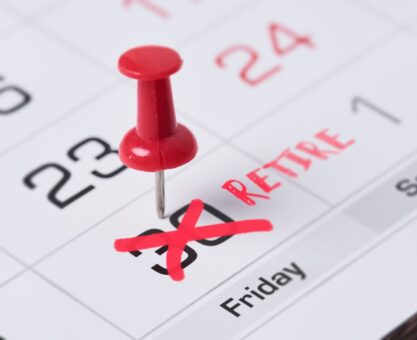As a federal employee, you have some of the best retirement benefits in the country: your FERS annuity, Social Security and the Thrift Savings Plan (TSP). You also have excellent healthcare insurance through FEHB with Uncle Sam picking up as much as 75% of your premiums (100% for USPS retirees).
Without a doubt your FERS retirement has a lot of moving parts to consider. Since the OPM is prohibited from giving you retirement planning advice, you’re left to navigate the ins and outs on your own. Without a little help you may make mistakes.
Deciding On When To Retire
Deciding on when to retire is not as simple as choosing a particular birthday. Meeting the FERS requirements for retiring with a full (unreduced) immediate benefit depends on your Minimum Retirement Age (MRA), based on the year you were born, and your total years of creditable service.
Calculating creditable service is a challenge. Many federal employees assume that their creditable service starts with their Service Computation Date – wrong. Your SCD is only used for calculating leave. If you make a calculation error when retiring, it can lower the amount of your annuity.
Deciding On When To Retire
Deciding on when to retire is not as simple as choosing a particular birthday. Meeting the FERS requirements for retiring with a full (unreduced) immediate benefit depends on your Minimum Retirement Age (MRA), based on the year you were born, and your total years of creditable service.
Calculating creditable service is a challenge. Many federal employees assume that their creditable service starts with their Service Computation Date – wrong. Your SCD is only used for calculating leave. If you make a calculation error when retiring, it can lower the amount of your annuity.
Deciding To Work Longer For The 10% FERS Bonus
Depending on your financial situation, it may be worth crunching the numbers with an advisor to see if this strategy works for you. When a FERS participant waits to retire until at least age 62 with at least 20 years of service, their high-3 salary is multiplied by 1.1% instead of 1%. The percentage bump may not seem that impressive until you do the math. It can work out to as much as a 10% raise in your monthly annuity for the rest of your life.
“If you retire before you’re eligible to continue FEHB in retirement, you’ll lose your coverage and you’ll never be able to re-enroll.”
Understanding How To Continue FEHB In Retirement
One of the biggest decisions you’ll make is choosing to continue your Federal Employees Health Benefits (FEHB) coverage into retirement. To meet the eligibility requirements you have to understand the 5-Year Rule. If you retire before you’re eligible to continue FEHB in retirement, you’ll lose your coverage and you’ll never be able to re-enroll.
Other Decisions That May Require The Help Of An Advisor
- Timing when to file for Social Security to maximize your benefit.
- The ins and outs of choosing a FERS survivor benefit.
- Decisions about life insurance, long-term care insurance and more.
When you work with an FRC® trained advisor who understands your federal benefits, they can help you analyze the pros and cons of your decisions while avoiding costly mistakes.




























